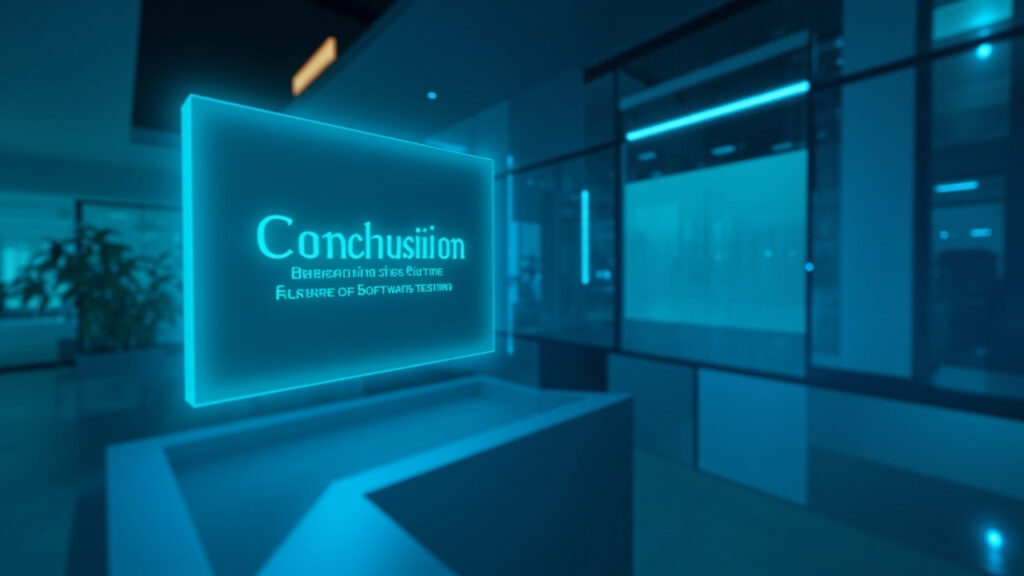In an era dominated by rapid technological advancements, the software development landscape has undergone vast transformations, pushing traditional testing methods to their limits. The speed of modern software releases requires not only accuracy but also efficiency, necessitating a shift towards more innovative testing methodologies. This blog post delves deep into the world of cutting-edge software testing, exploring its importance, challenges, and the revolutionary impact of AI-driven platforms like GenQE that are setting new standards in the industry.
The reliance on traditional testing methods has often resulted in bottlenecks, where the manual effort cannot keep pace with the requirements for quality and speed. Here, we uncover the pivotal role that AI-enhanced tools play in overcoming these challenges, offering a glimpse into a future where software quality is uncompromised and seamlessly integrated within the development process.
By the end of this exploration, you will gain comprehensive insights into how cutting-edge technologies are reshaping the testing landscape, providing the tools necessary to elevate software quality and efficiency to unprecedented levels.
The Evolution of Software Testing: From Manual to Automated Paradigms

Software testing has traditionally been a labor-intensive process, fraught with challenges and often a bottleneck in the development cycle. The shift from manual testing to automated testing marked a significant evolution, enhancing efficiency and consistency. However, the complexity and pace of modern software development demand even more advanced solutions.
The Limitations of Traditional Testing Methods
Manual testing is time-consuming and susceptible to human error, making it increasingly impractical in today’s fast-paced development environments. Automated testing improved this scenario by speeding up the process, but often struggled with adaptability and maintenance, especially when dealing with frequent changes in application features or design.
The Rise of Automated Testing Tools
With the advent of automated testing tools, teams could run tests faster and more frequently. Tools like Selenium and Appium revolutionized the testing landscape, offering robust frameworks for automating web and mobile applications. Yet, these tools still require significant setup and maintenance, highlighting the need for more intelligent and adaptive solutions.
The Advent of AI in Software Testing

Artificial intelligence is set to transform software testing by introducing capabilities that automate not just the execution but also the creation and maintenance of tests. AI in testing is not just an incremental improvement; it represents a paradigm shift in how testing can be integrated and performed.
AI-Driven Test Generation
The application of AI for test generation involves the use of machine learning algorithms to analyze application data and user interactions to automatically generate test cases. This not only speeds up the testing process but also ensures more comprehensive test coverage by identifying edge cases that human testers might overlook.
Enhancing Accuracy with Machine Learning
Machine learning models can learn from historical test data, improving their predictions and recommendations over time. This capability allows AI-driven testing tools to not only identify potential points of failure but also to adapt to changes in the application without requiring manual intervention in the test scripts.
GenQE: A Case Study in AI-Powered Testing Efficiency

In the context of these advancements, GenQE emerges as a leading solution by leveraging AI to enhance every aspect of software testing. Its capabilities demonstrate the practical applications of AI in overcoming traditional testing challenges.
AI-Driven Test Generation and Execution
GenQE automates the creation and execution of test cases by analyzing software requirements and user behavior data, significantly reducing the need for manual test design and allowing testers to focus on more complex tasks.
Smart Test Execution and Self-Healing Automation
The platform intelligently prioritizes test cases based on risk and potential impact, ensuring critical areas are tested first. Moreover, its self-healing capabilities minimize maintenance efforts by automatically adjusting test scripts when application changes are detected.
Integrating AI Testing Tools into DevOps and Continuous Integration

The integration of AI testing tools like GenQE into DevOps practices and CI/CD pipelines illustrates the synergy between rapid development cycles and consistent software quality.
Seamless CI/CD Integration
AI-powered testing tools are designed to integrate seamlessly with existing CI/CD tools like Jenkins and GitHub Actions. This integration ensures that testing is a continuous part of the development process, not a discrete step that could delay releases.
Continuous Testing for Continuous Deployment
Incorporating AI-driven testing into continuous deployment practices allows teams to detect and address issues in real-time, significantly reducing the time to market and enhancing the reliability of software releases.
The Impact of AI on Testing Efficiency and Software Quality

The implementation of AI in software testing extends beyond mere automation. It introduces a level of intelligence and adaptability that traditional tools cannot match, significantly impacting both efficiency and the quality of software products.
Case Studies and Real-World Applications
Several high-profile companies have successfully integrated AI-powered testing solutions, witnessing substantial improvements in testing times, coverage, and bug detection rates. These case studies serve as a testament to the potential of AI in revolutionizing software testing.
Statistical Evidence of Improvement
Research and surveys highlight the effectiveness of AI in reducing testing costs and time while improving software quality and customer satisfaction. These statistics provide concrete evidence supporting the shift towards AI-enhanced testing tools.
Conclusion: Embracing the Future of Software Testing

As we navigate through the complexities of modern software development, the integration of AI-driven testing tools like GenQE provides a beacon of efficiency and quality. The evolution from manual to AI-enhanced testing is not just inevitable; it is essential for businesses aiming to thrive in a competitive digital landscape.
By embracing these cutting-edge technologies, organizations can ensure their products meet the highest standards of quality, while also accelerating their time to market. As we look towards the future, the role of AI in software testing will only grow, becoming a cornerstone of successful software development practices.
For those interested in staying ahead of the curve, exploring tools like GenQE represents not just an opportunity, but a strategic imperative to redefine the standards of software quality and reliability.
Explore the future of AI-driven software testing with GenQE and redefine your approach to quality engineering.
Discover More Innovative Solutions
Want to learn more about the tools and technologies discussed in this article? Explore how these innovations can be tailored to your specific needs and workflow requirements.
Our team of experts is available to answer your questions and provide personalized insights into how modern solutions like GenQE can address your specific challenges.